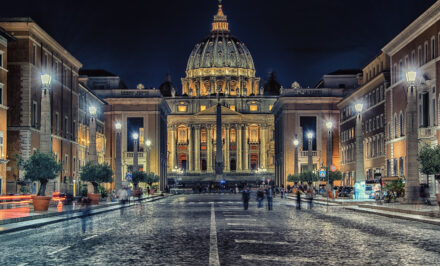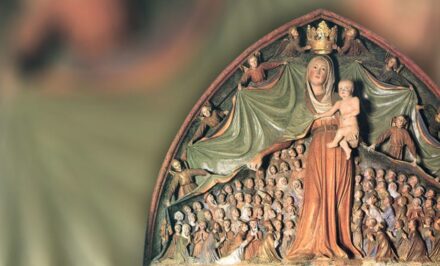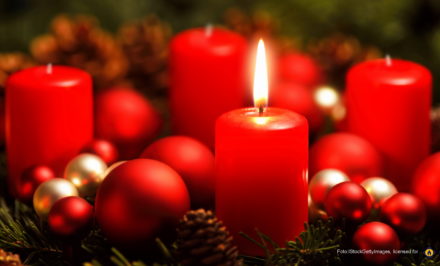 Fr. Nicolás Schwizer. What do we celebrate at Christmas? We celebrate the birth of a child, but not that of a common child, rather, it is a Child who is God. Now, if we compare this birth with other births, for example, with the births of our children, then we notice some strange things. This child is born in unusual circumstances, disconcerting, even annoying circumstances – since it has to do with the Son of God.
Fr. Nicolás Schwizer. What do we celebrate at Christmas? We celebrate the birth of a child, but not that of a common child, rather, it is a Child who is God. Now, if we compare this birth with other births, for example, with the births of our children, then we notice some strange things. This child is born in unusual circumstances, disconcerting, even annoying circumstances – since it has to do with the Son of God.
1. A first strange circumstance. He makes himself known to the shepherds.
He came to earth. He did not warn the great ones. He did not warn the mighty ones. He made nothing known to the priests. He cast aside the hierarchy.

There was no press conference to announce to the world an event of such significance. Nevertheless, he was greatly interested that someone would know. Someone had the right to be the first to know the news. He sends his messengers to some shepherds who were camped near the city guarding their flocks. The shepherds live on the margin of society and also often on the margin of religion. They are uneducated, they do not know the law, and, therefore, they are destined to hell according to the Pharisees. It is precisely to these “excommunicated” ones to whom Christ sends his angels to announce his coming.
Jesus wants to make everything clear from the beginning. He sees everything in reverse. In his eyes, the great ones are the small ones. The last are the first. Those shunned by society are his privileged clients. The Good News is communicated first and first belongs to those who are “on the outside.”
2. A second strange circumstance. He is not recognized by mankind.
Let us think, for example, in the innkeepers at Bethlehem. If they had known that God was there, they would have opened the door and would have sheltered him because they were religious persons like we. But they thought it had to do with vagabonds, refugees from who knows where, a pair of unknown persons.
And they did not want to receive them. And we, would we have received them? How could we believe that God wanted to present Himself to us in this form?
3. A third strange circumstance about the birth. It is God and He is born in misery.
God is totally different from how we imagine him. God is the opposite of power, majesty, authority, richness… opposite of the power which we have attributed to him.
But God is totally similar to the simple ones, to the poor… similar to those who feel brotherly, similar to the merciful, to those who love, to those who are hungry for justice.
It isn’t that Christ is not a man as we are, rather it is that he is such a man… the only true man: totally free, simple, loving, loyal, available. The Good News announced by Christmas consists in this.
To become like God, we do not have to become wealthy, strong, solitary or majestic. It is enough that we love a little bit more… with serving a little bit more… with approaching more the poor… with fighting a little bit more for justice. We can quickly become Christ right where we are, at our social or cultural level. Without waiting for visions or miracles, but by becoming the last of everyone and the servants to all.
God is poor: poor about all those things we long for… that we seek… which we pretend. And let us not say that God hides or is absent from the world. God is extraordinarily present and visible: so present and so visible – or so little present or so little visible as are the poor in our lives.
If we want to meet up with the true God who comes to us at Christmas, we must go to meet up with the poor.
And if that love for the unfortunate is born in us, God becomes truly present in our heart. That is the Christmas we should make. That is the true Christmas in which we should believe. We are responsible for that Christmas taking place everywhere.
Source:{cms_selflink page=”virtual-retreat” text=” Virtual Retreat, Fr. Nicholas Schwizer”}













